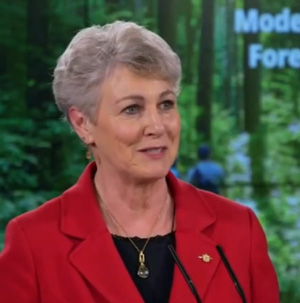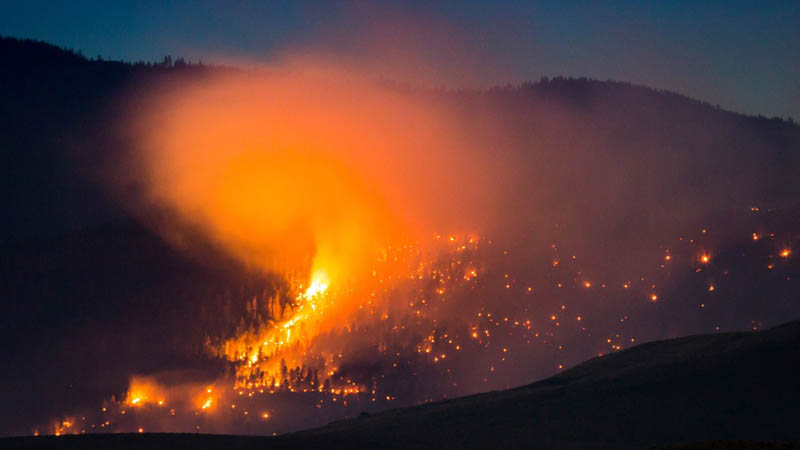
Saturday September 4, 2021 | VICTORIA, BC
by Mary P Brooke, Editor | Island Social Trends
The Canadian Armed Forces deployment on B.C. wildfires in 2021 wraps up Sunday September 5, said the Minister of Forests, Lands, Natural Resource Operations and Rural Development, Katrine Conroy, in a news release on September 3.
“This year, the Canadian Armed Forces provided personnel and aircraft to help with evacuations, air transport for fire crews and equipment, and firefighting activities. Those personnel have played a significant role in the BC Wildfire Service’s response to the Thomas Creek, Flat Lake and White Rock Lake fires.
“About 300 personnel from the Canadian Armed Forces’ Land Task Force and 55 personnel from the Air Task Force were assigned to help with wildfires in BC, with about 625 individuals cycling through as part of that ongoing effort.
Other incoming support:
When faced with such extreme circumstances, the BC Wildfire Service often reaches out to other jurisdictions for support to help keep communities safe.
“This year, in the midst of the COVID-19 pandemic, we’ve been fortunate to receive assistance from other Canadian provinces and territories, Parks Canada, Mexico and Australia, and from contractors, industry personnel, First Nations and other key partners here in BC,” said Conroy.
Promising more firefighters:
During the current federal election campaign, Liberal leader Justin Trudeau has promised funds to training 1,000 municipal firefighters and for the purchase of equipment: $50 million for the training (most of that would likely go to BC given the number of wildfires here, but also Alberta and Ontario) and $450 million to provinces and territories for equipment.
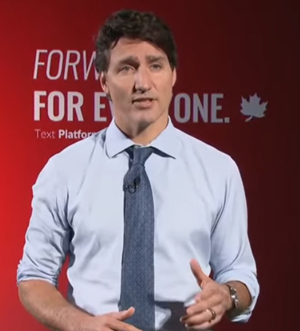
“A re-elected Liberal government will support the training of 1,000 new community-based firefighters and the purchasing of new equipment to continue to fight the impacts of climate change across the country,” it was stated on August 18.
Trudeau says there is a climate emergency and the safety and security of Canadians is at stake. In addition to the challenges of the fires themselves (including the potential loss of life and property), there is a loss of natural habitat and also the health concerns around smoky air which also drifts into urban areas. This summer a combination of extreme heat and wildfire smoke generated new health challenges for many communities in BC. On top of that, among displaced communities during wildfire evacuations there was the additional concern of exposure to COVID among transient populations.
BC Premier John Horgan said this summer that the training of Canadian military had been inadequate in 2020, and this year it was confirmed to media that again in 2021 military were assigned to ‘mopping up’ after the active wildland firefighting had been done.
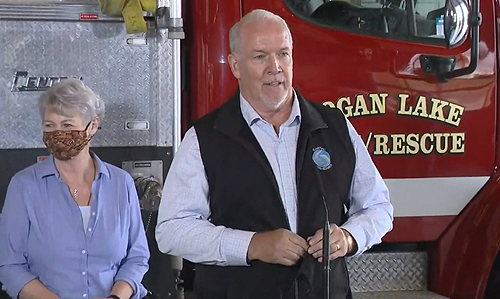
Firefighters are trained locally & regionally:
Municipal firefighters in BC are trained within municipal fire departments. There are 162 municipalities in BC, so that’s about six new firefighters, on average, per municipality.
Firefighters are trained within local fire departments. That training is about handling structure fires (buildings, etc), while training for wildland fire supression is another type of training.
About the training:
Municipal firefighters (many of which are volunteers within their communities), require the Level 1 training (S-100 Basic Fire Suppression and Safety).
The S-100 is a two-day, 16-hour course with both a classroom and a field component. The annual refresher is a one-day, four-hour course and does not include a field component. Both the S-100 and S-100A are good for one year from date of delivery. If a person has taken either course within the last five years, they would only need to take the S-100A to be considered trained for the following year. If more than five years have passed since a person has taken either course, they would need to re-take the two-day, S-100 course again.
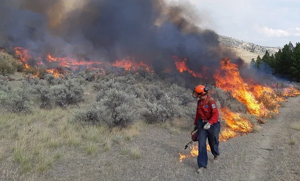
In order to participate in wildland/wildfire firefighting, the S-185 course is required. It’s intended as a general knowledge course on wildfire safety and entrapment avoidance for local governments, contract crews, and First Nations. Endorsement to instruct this course is provided by the BCWS with the S-100 endorsement. Endorsement letters should reference this endorsement. Evidence of completion (e.g. a card or certificate) of this course can be provided in a manner of the instructor’s choice. This is usually done with a certification card with the trainer’s name or company information, date completed, and student name.
Firefighting courses:
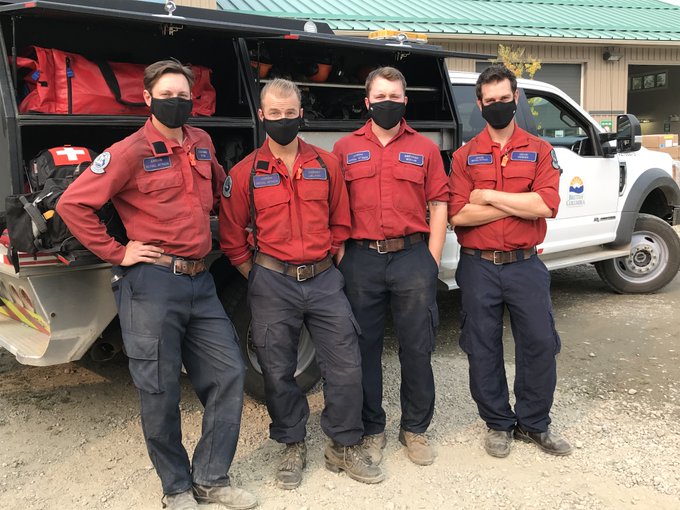
According to the Ministry of Forests, Lands, Natural Resource Operations and Rural Development, the following are courses are considered official firefighting training in BC and are commonly offered to non-governmental personnel:
- S-100 Basic Fire Suppression and Safety (2005)
- S-100A Basic Fire Suppression and Safety Annual Recurrency (also known as S-10A)
- S-185 Fire Entrapment Avoidance & Safety (2006)
- S-212 Communications (2005)
- S-213 Use of Bulldozers (2005)
- S-230 Single Resource Leader (2005)
- S-235 Ignition Operations (2005)
- S-241 Fire Assessment (2005)



